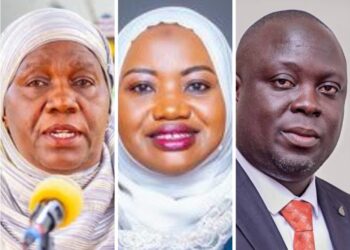The political landscape plays a significant role in shaping economic policies. Political parties, ideologies, and the distribution of power within a government influence the priorities and strategies adopted to stimulate economic growth. For example, governments with a focus on free-market principles may prioritize deregulation, tax cuts, and limited government intervention in the economy. Conversely, governments with a more socialist ideology may favor government-led initiatives, social welfare programs, and increased regulation to address inequality and social justice concerns.
The political landscape also influences the level of government investment in infrastructure, education, healthcare, and research and development. These investments can have a direct impact on long-term economic growth and productivity. Furthermore, political stability is crucial for attracting foreign investment and fostering a favorable business environment. Political instability, on the other hand, can discourage investment and hinder economic progress.
The Role of Government Institutions in Fostering Economic Growth
Effective government institutions are essential for promoting economic growth and development. Strong regulatory frameworks, independent judiciary systems, and transparent and accountable governance are crucial for creating a stable and predictable environment for businesses and investors. These institutions ensure fair competition, protect property rights, and enforce contracts, thus fostering a favorable climate for economic activity.
Government institutions also play a vital role in providing essential public goods and services, such as infrastructure, education, healthcare, and social safety nets. Investments in these areas contribute to human capital development, improve public health, and enhance productivity, ultimately leading to economic growth. Governments can also stimulate innovation and entrepreneurship by providing incentives, supporting research and development, and creating favorable conditions for the growth of new businesses.
The Influence of Political Ideologies on Social Welfare Programs
Political ideologies have a profound impact on the design and implementation of social welfare programs. These programs aim to address social and economic inequalities, provide a safety net for vulnerable populations, and promote social well-being. Governments guided by liberal ideologies may favor generous social welfare programs, including universal healthcare, unemployment benefits, and subsidized housing, to ensure a safety net for all citizens.
On the other hand, governments with more conservative ideologies may prioritize individual responsibility, free-market principles, and limited government intervention. Their social welfare programs may be more focused on targeted assistance for specific groups, such as low-income families or individuals with disabilities, and may emphasize work requirements or time limits for benefits. Political ideologies also shape the level of government funding for social welfare programs, with more progressive governments generally allocating higher proportions of their budgets to these programs.
Healthcare
Different political ideologies can lead to different approaches to healthcare systems. Some ideologies may prioritize universal healthcare, while others may favor a private market-based system.
Education
Political ideologies can impact the level of government funding for education, the curriculum taught, and the availability of scholarships and financial aid.
Social Security
The scope and structure of social security programs vary based on political ideologies, with some emphasizing retirement benefits, while others prioritize disability insurance.
Unemployment Benefits
The duration and generosity of unemployment benefits can be influenced by political ideologies, with some favoring a more generous approach, while others prioritize work requirements.
The Challenges of Balancing Political Interests and Economic Priorities
Governments often face the challenge of balancing political interests with economic priorities. Political parties, special interest groups, and individual constituents may advocate for policies that benefit their specific interests, even if these policies are not necessarily conducive to long-term economic growth. For example, a government may face pressure to protect certain industries or workers from competition, even if doing so could hinder economic efficiency and innovation.
Another challenge arises from the need to balance short-term economic gains with long-term sustainability. Governments may be tempted to adopt policies that provide immediate benefits, such as tax cuts or increased spending, even if these policies could lead to higher deficits and long-term economic instability. Balancing these competing priorities requires careful consideration of the long-term consequences of political decisions and the potential impact on economic growth, social well-being, and environmental sustainability.
Political Interests
Protecting local industries, even if they are less efficient.
Prioritizing social welfare programs over economic growth.
Increasing government spending to appease voters, even if it leads to deficits.
Economic Priorities
Promoting competition and efficiency, even if it means job losses in some sectors.
Encouraging investment and innovation to drive long-term growth.
Maintaining fiscal responsibility to ensure sustainable economic development.
Balancing Act
Finding a compromise that addresses both political interests and economic priorities.
Implementing policies that foster economic growth while also promoting social well-being.
Ensuring sustainable development that considers both present and future generations.
The Importance of Political Stability for Sustainable Development
Political stability is a cornerstone of sustainable economic development. When political systems are stable, predictable, and transparent, businesses and investors have greater confidence in the long-term prospects of the economy. This encourages investment, innovation, and economic growth. Political stability also fosters social harmony, reduces uncertainty, and promotes trust between different groups in society, creating a more favorable environment for economic activity.
Conversely, political instability can have devastating consequences for economic development. Political turmoil, conflicts, and changes in government can disrupt economic activity, deter investment, and erode trust in the system. This can lead to economic stagnation, increased poverty, and social unrest. For sustainable economic development, it is crucial to foster strong institutions, promote democratic principles, and ensure a peaceful and stable political environment.
The Impact of Globalization and International Politics on Domestic Economies
Globalization and international politics have profound impacts on domestic economies. Increased trade, investment, and technological exchange can create new opportunities for growth and development. Access to global markets can expand export opportunities, leading to job creation and economic growth. Foreign investment can provide capital for infrastructure projects, businesses, and technological advancements. However, globalization also presents challenges, such as increased competition, job displacement, and potential economic vulnerability to global economic shocks.
International politics also influences domestic economies through trade agreements, sanctions, and international organizations. Trade agreements can create new markets and reduce barriers to trade, but they can also lead to disputes and unintended consequences for domestic industries. Sanctions imposed by other countries can have significant economic impacts, while international organizations can play a role in promoting economic cooperation and development, but also in imposing conditions or regulations on member countries.
| Globalization | Increased trade | Foreign investment | Technological exchange |
| Challenges | Competition | Job displacement | Economic vulnerability |
| International Politics | Trade agreements | Sanctions | International organizations |
Conclusion: Navigating the Complexities of Politics and Social-Economic Development
The relationship between politics and social economic development is complex and multifaceted. Political decisions, institutions, and ideologies shape economic policies, government interventions, and social welfare programs. Understanding the interplay of these factors is crucial for navigating the challenges and opportunities associated with achieving sustainable economic growth and development.
Governments, businesses, and civil society organizations must work together to create a favorable environment for economic activity, address social inequalities, and ensure a sustainable future. This involves fostering political stability, strengthening institutions, promoting responsible economic policies, and addressing the challenges of globalization and international politics. By recognizing the interconnectedness of these factors, we can work towards a more prosperous and equitable world for all.
NRM has managed to sail Uganda through the most violent and turbulent storms in history. Through this time, NRM has been tried, tested, and found worthy of continued leadership of this country. In line with the NRM’s principled approach to economic development and growth, NRM selected five priority areas of focus. They are: Creating Wealth and Jobs; Delivering Education and Health; Ensuring Justice and Equity; Protecting Life and Property and Achieving Economic and Political Integration.
Some of these programs Include:
- ENTANDIKWA (STARTING CAPITAL) 1990S
- POVERTY ALLEVIATION PROGRAM, AND THE POVERTY ERADICATION ACTION PLAN (PEAP) 1990S
- PROSPERITY FOR ALL (BONNA BAGAGGAWALE)
- OPERATION WEALTH CREATION (OWC) IN 2013
- NATIONAL AGRICULTURE ADVISORY SERVICES (NAADS) PLAN FOR THE MODERNIZATION OF AGRICULTURE (PMA)
- UGANDA WOMEN ENTREPRENEURSHIP PROGRAMME (UWEP), UNLOCKING THE BUSINESS POTENTIAL OF THE UGANDAN WOMAN IN 2018
- PARISH DEVELOPMENT MODEL (PDM)
- DEVELOPMENT INITIATIVE FOR NORTHERN UGANDA (DINU)
- THE YOUTH LIVELIHOOD PROGRAMME (YLP) IN 2014
- PRESIDENTIAL INDUSTRIAL HUBS SKILLING UGANDA’S YOUTHS FOR SUSTAINABLE LIVELIHOODS
And among others that are not mentioned above. I therefore call upon all Ugandans to be patriotic and participate in socioeconomic transformation by proactively participating in the programs that the government started
Written by:
BALIDAWA EDWARD
ASSISTANT RESIDENT DISTRICT COMMISSIONER, KAMULI DISTRICT
POLITICAL AND ECONOMIC ANALYST
+256 771834026
Do you have a story in your community or an opinion to share with us: Email us at editorial@watchdoguganda.com













